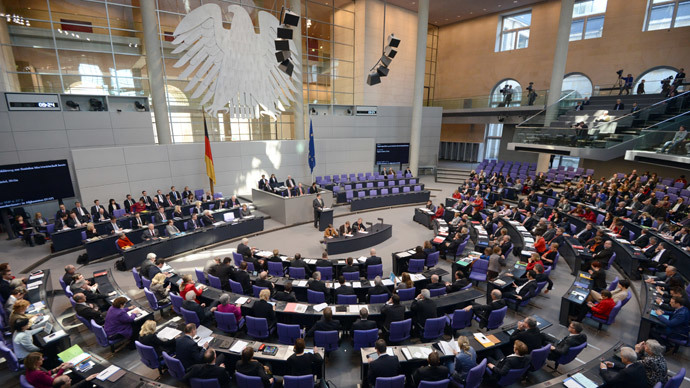Germans may sweep parliament for bugs, tapped phones

The German parliament building may be soon checked for bugs and eavesdropping landlines to ensure privacy. Berlin is ramping up security amid a scandal over electronic surveillance by the US National Security Agency.
A plan to secure the Bundestag complex was prepared by the Federal Office for Information Security (BSI) and approved by the IuK, the parliamentary commission on information technology and communications, Der Spiegel magazine reported on Monday citing its sources. It is to be presented to MPs later this week.
One of the prime areas of interest for the BSI is posed by supposedly secure rooms, which are meant to be used for negotiations of officials related to confidential matters. The office wants to ensure that they are actually free of bugs, the report says.
They also want to check landlines in the building, because they can be used for remote eavesdropping on the parliament.
The BSI may also launch an awareness campaign for the MPs over the safety of their mobile phones. The German government has standard secure models supporting encryption of communications, but the deputies and their staff members mostly prefer conventional models, because they are less cumbersome.
The measures have been under discussion for some time, since documents leaked by NSA whistleblower Edward Snowden revealed that German politicians, including Chancellor Angela Merkel, are subject to the agency's surveillance. The revelation caused a scandal in the surveillance-conscious nation, which experienced serious infringements of privacy during Nazi rule and later under a Communist government in the east.
The Bundestag is located in central Berlin, not far from the embassies of the UK, France, Russia and the US, the latter reportedly being a base for American surveillance on Germans, Der Spiegel pointed out.














